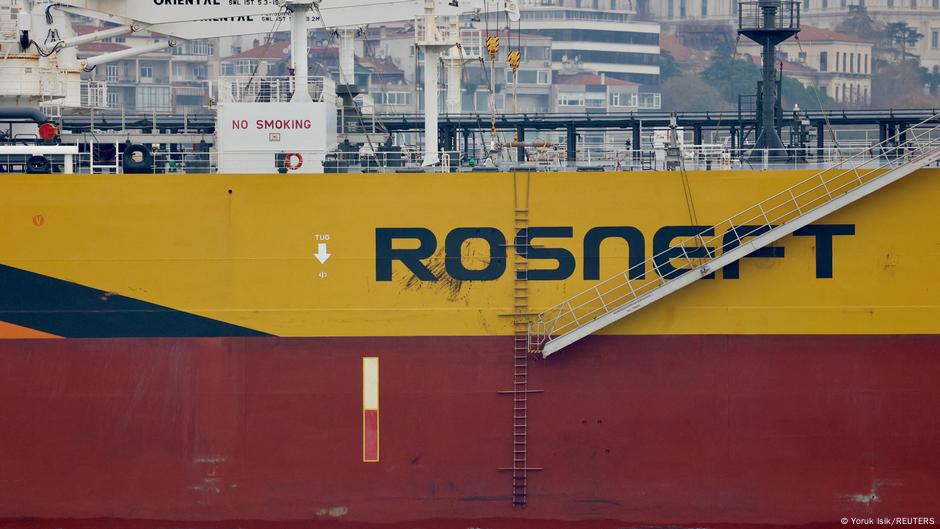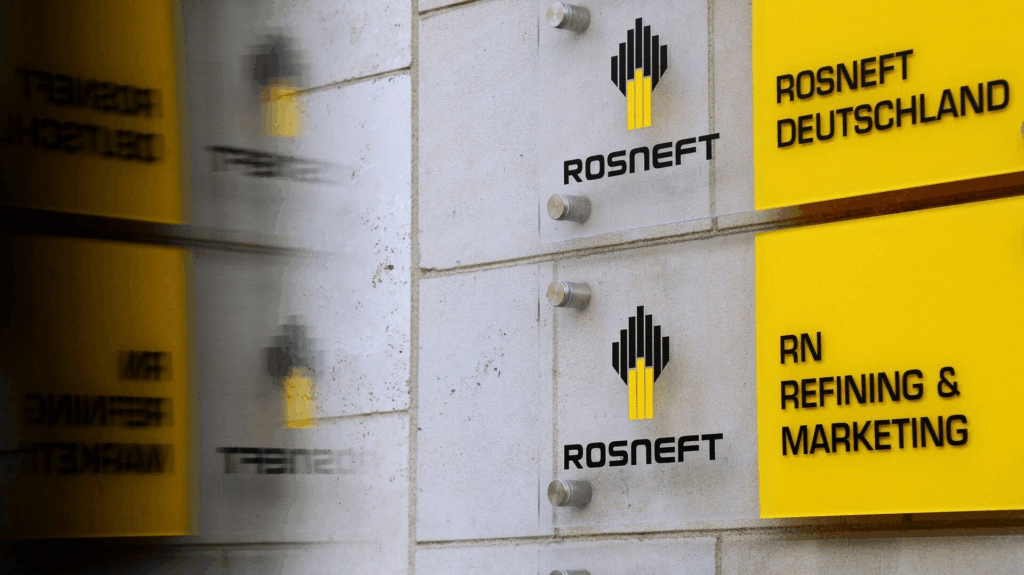⏳ The United States has once again reshuffled Europe’s energy agenda. According to Bloomberg, Washington has given Germany six months to fully resolve the legal status of the German subsidiary of the Russian oil giant Rosneft (we wrote about sanctions here). In diplomatic speak, this means: the time for polite hints is over — it’s time either to completely remove Russian involvement or prepare for sanctions.
The American ultimatum with a caveat
According to the agency, the Trump administration is considering issuing a limited license to Rosneft Deutschland GmbH, which would temporarily exempt it from U.S. sanctions. But there is one “but” — for this to happen, Germany must present a new ownership structure that entirely excludes Russia’s presence. In other words — act as though Rosneft has nothing to do with it, even though everyone fully understands that the oil roots stem from there.

In Berlin, the proposal was taken seriously. Bloomberg, citing sources, reports that German officials are now studying the details of the American offer and promise to respond in the coming days. Germany’s Economics Minister Katherina Reiche plans to discuss this issue with colleagues at the G7 energy ministers meeting in Toronto — because the situation is, to put it mildly, delicate.
The German knot: how Rosneft became Europe’s internal problem
To understand why the issue of Rosneft Deutschland has become so acute, one must recall how Germany ended up owning part of Russian assets. After Russia’s invasion of Ukraine began, Berlin in 2022 placed the German units of Rosneft under state trust management. This move was forced — at that time Rosneft’s companies accounted for about 12 % of Germany’s refining capacity, including the strategically important refineries in Schwedt and Karlsruhe.
In other words, Germany could not simply abandon those capacities at once — dependence was too large. But maintaining direct Russian involvement became politically toxic. Now, three years later, Berlin finds itself in a deadlock: formally the German state controls the enterprises, but legally they are still owned by Rosneft structures. For the U.S., such a “gray zone” is unacceptable.

Why Washington intervened now
In October, the Trump administration expanded sanctions against Rosneft, Lukoil, and related companies (we wrote about the sanctions here). Formally, the sanctions aim to limit Russia’s revenue from oil exports. However, in Germany’s case the situation is unique: if American restrictions take effect without exceptions, the enterprises impacted would be German, not Russian. And here begins the political puzzle: how to punish Rosneft without striking an ally?
According to Bloomberg sources, the White House is willing to collaborate with Berlin — but only if a real — not cosmetic — restructuring of ownership is undertaken. The license is not “forgiveness,” but a postponement, giving Germany time to build a new legal structure where Russia is officially removed from the ownership chain. Essentially, the U.S. is offering: remove Russia from the equation, and we will not touch your energy sector.
Germany tries to buy time
Chancellor Friedrich Merz has already publicly stated that he expects an exemption for Rosneft Deutschland and another subsidiary — RN Refining & Marketing GmbH, also under state management. But within Germany, there is no consensus. Some experts and politicians insist on full nationalization of the assets to permanently eliminate dependence on Moscow. Others caution that such a move could result in legal suits, multibillion-euro compensation, and — importantly — loss of investor trust.

Berlin is effectively navigating between legal mines. Any decision must balance energy security, international politics, and reputation. Meanwhile, the U.S. watches closely and, it appears, is not planning to grant leniency.
What is at stake
This is not just a legal conundrum. Rosneft Deutschland manages a significant portion of refining capacity on which Germany’s fuel and diesel supply depend. If the company falls fully under sanctions, banks, insurers, and counterparties would have to suspend cooperation. This threatens not merely a bureaucratic pause, but a genuine fuel crisis — exactly what Berlin fears.
For Europe the issue has strategic importance. Any disruptions in German refineries would instantly affect regional fuel supplies and prices. Therefore, at the G7 meeting, sources say, the issue of Rosneft Deutschland could become one of the most discussed — if unofficially.

Behind the scenes in diplomacy
Unofficially, German circles admit: talks with Washington are an attempt to buy time. Within six months, Berlin must either permanently acquire the assets from Rosneft (through nationalization or bringing in new investors), or prove to the U.S. that Russian influence has been legally removed. But achieving this without financial losses is difficult: the asset is valued in the billions of euros, and trust-management legal frameworks do not allow for forced buyouts without lengthy procedures.
Meanwhile, Rosneft itself remains publicly silent, but according to unofficial reports, the company is preparing a legal position in case Germany moves to place the assets under permanent state ownership.
Energy policy as a chessboard
This whole story is a classic example of how energy and politics intertwine into a single game where every move carries consequences. The U.S. uses sanctions as a pressure tool, Germany attempts to balance alliance loyalty with internal energy stability, and Russia, though sidelined, still holds several legal and economic trump cards.
🌍 One could say that Rosneft Deutschland has become not just an energy asset, but a symbol of a new era in European politics: an era in which oil, gas, and sanctions are so tightly interwoven that a single decision in Washington can shift the balance of power across the continent.
All content provided on this website (https://wildinwest.com/) -including attachments, links, or referenced materials — is for informative and entertainment purposes only and should not be considered as financial advice. Third-party materials remain the property of their respective owners.


